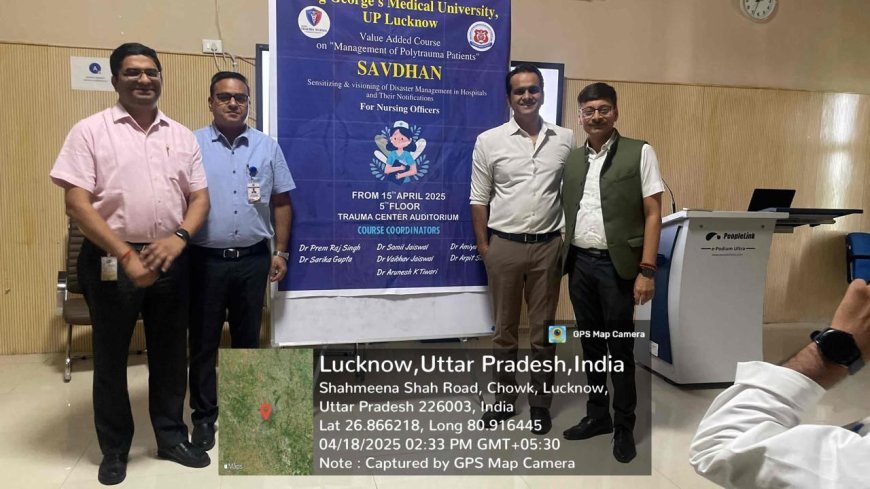KGMU Launches 'SAVDHAN' Program to Enhance Emergency Trauma Management Skills
KGMU launches ‘SAVDHAN’ training to boost trauma management and disaster response efficiency among hospital staff with practical sessions.

The training program is specifically designed for single and paramedical staff, with a focus on enhancing practical proficiency and mental capacity for handling disasters and trauma management (especially multi-organ injuries). The goal is to prepare the medical staff to better manage emergencies with quick identification, proper resuscitation, and adherence to established medical protocols.
The name "SAVDHAN" symbolizes awareness and alertness in disaster management. The program emphasizes improving emergency medical services, better management practices, and swift identification and treatment protocols. At the conclusion of the program, participants will undergo an MCQ-based exam of 100 marks. Those scoring at least 50% will be awarded a certificate of completion.
The training will cover essential topics such as Airway, Breathing, and Circulation (ABC), which are critical in trauma and emergency care. The program will include lectures, live demonstrations, and hands-on practice sessions to teach effective trauma management techniques and procedures.
This initiative has been set in motion under the inspiration of Professor Sokanya Kanatyanin, a faculty member at KGMU. The program also features expert faculty members including Prem Raj Singh, Sosmal Jaiswal, Asmay Agarwal, and Vaibhav Jaiswal, who will provide the necessary expertise for the training.
The main objective of the SAVDHAN program is to strengthen the disaster response system in hospitals and enhance the quality of trauma care management. This program is a significant step towards making emergency medical services more effective, enabling hospital staff to respond with efficiency and precision during critical situations.
This training will not only boost the readiness of KGMU's staff but also contribute to improving disaster response standards in hospitals across the region.
What's Your Reaction?




















































